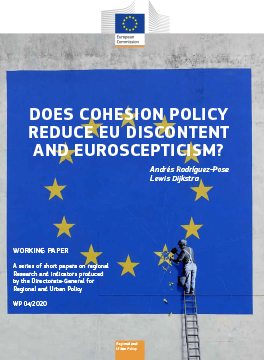
Some regions in Europe that have been heavily supported by the European Union’s cohesion policy have recently opted for parties with a strong Eurosceptic orientation. The results at the ballot box have been put forward as evidence that cohesion policy is ineffective for tackling the rising, European-wide wave of discontent. However, the evidence to support this view is scarce and, often, contradictory.
This paper analyses the link between cohesion policy and the vote for Eurosceptic parties. It uses the share of votes cast for Eurosceptic parties in more than 63,000 electoral districts in national legislative elections in the EU28 to assess whether cohesion policy investment since 2000 has made a difference for the electoral support for parties opposed to European integration.
The results indicate that cohesion policy investment is linked to a lower anti-EU vote. This result is robust to employing different econometric approaches, to considering the variety of European development funds, to different periods of investment, to different policy domains, to shifts in the unit of analysis, and to different levels of opposition by parties to the European project. The positive impact of cohesion policy investments on an area and a general awareness of these EU investments are likely to contribute to this result.
